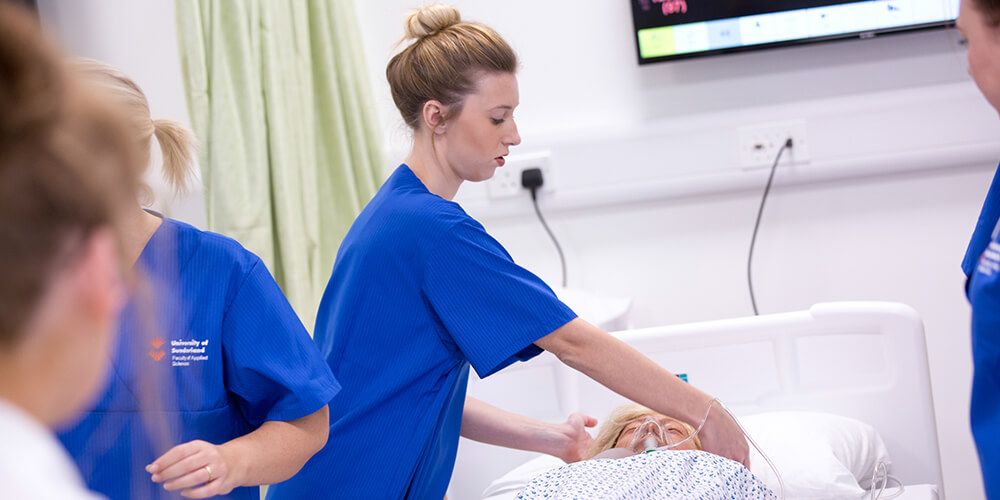Course modules
Fundamentals of District Nursing Practice (30 credits)
In this module, you'll explore the advancement of district nursing practice on a local and national scale, considering the impact of epidemiology on the remit of services across the nation. It will prepare you for the demands of an expanding scope of practice and provides the knowledge required to offer high-quality care in the community setting. It will also prepare you to operate autonomously, managing advanced care whilst overseeing caseloads and teams, necessitating expertise in case management and the application of theory in high pressure situations. You'll work to ensure accessibility of care to marginalised communities through a holistic approach that addresses the needs of individuals, families, and communities.
Leading and Managing District Nursing Services (30 credits)
This module will explore how district nurses are increasingly responsible for leading the care of patients with increasing awareness in diverse community settings. You'll learn to understand the balance of patient care with leadership responsibilities and how this plays a crucial role in maintaining and enhancing the quality of community nursing services. As community service demands increase, district nurses must adeptly manage change within services and workforce needs to ensure high-quality care for all service users.
Advanced Clinical Management Skills (20 credits)
Using a systems approach, this module will allow you to develop your ability to take a system specific history and complete the relevant physical examinations, utilising diagnostic indicators to enhance safe clinical management plans relevant to your role and area of practice. Working at an advanced level of clinical practice, you'll develop the ability to critically appraise contemporary sources of evidence to inform clinical management. You'll also learn how to critically analyse and review care decisions by discussing alternative approaches to care delivery which meet the requirements for advanced practice. Throughout the module, you'll consider, discuss, and debate the ethical, legal, and moral dilemmas faced when working at advanced practice level.
Enhanced Prescribing for Health Professions (40 credits)
Undertaking a prescribing module prior to prescribing in practice is a requirement of the Professional Standards and Regulatory Body, the Nursing and Midwifery Council, and the Health and Care Professions Council. This module will equip you with the independent and supplementary knowledge and skills required in prescribing, preparing you in your respective field to become a safe and effective prescribing practitioner.

